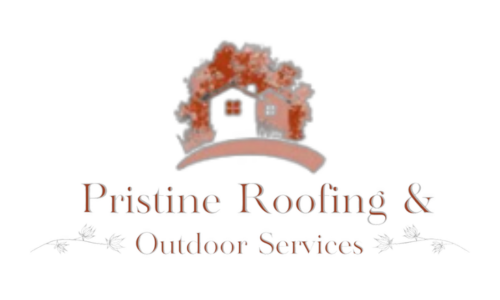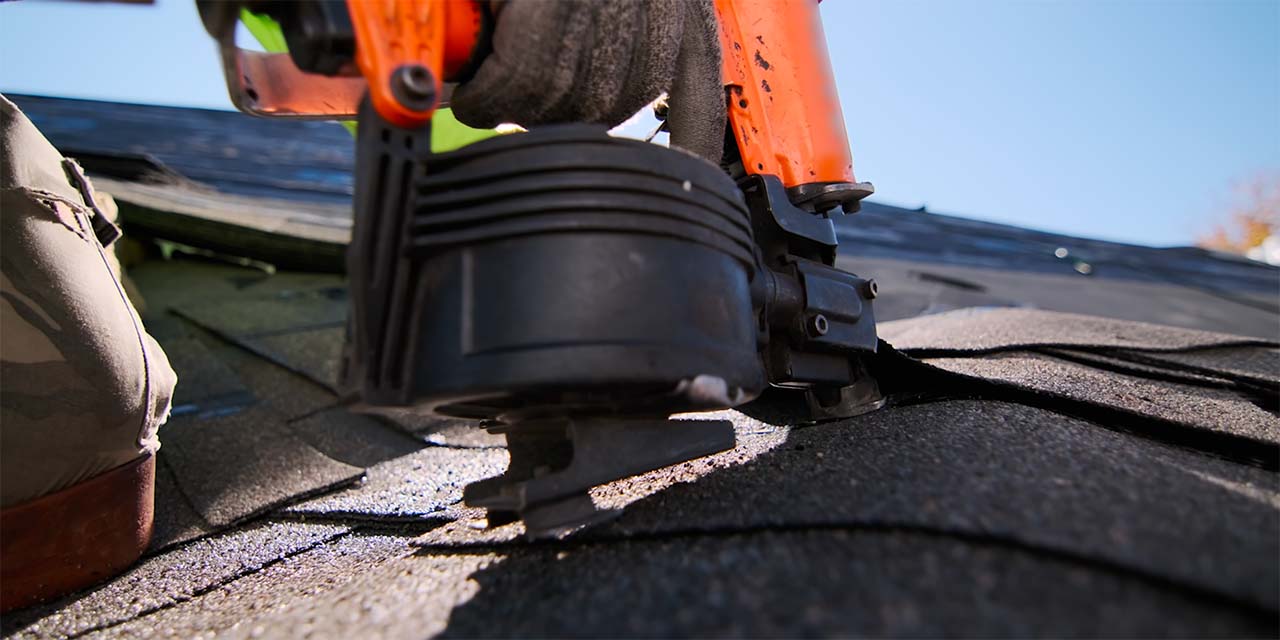In today’s fast-paced world, convenience is key. When it comes to addressing issues with your roof, finding reliable solutions quickly is crucial to prevent further damage and ensure the safety and integrity of your home. If you’re facing roofing problems and searching for “roof repair near me,” you’re in the right place. In this comprehensive guide, we’ll explore common roofing issues, how to assess roof damage, repair techniques, choosing a reputable contractor, DIY maintenance tips, preventive measures, cost factors, insurance coverage, signs of a well-repaired roof, and long-term maintenance strategies to keep your roof in top condition.
Understanding Common Roofing Issues
Leaks and Water Damage
One of the most common roofing problems homeowners face is leaks and water damage. Whether it’s due to damaged shingles, faulty flashing, or improper installation, leaks can lead to costly repairs and structural issues if left unaddressed.
Damaged Shingles or Tiles
Over time, exposure to the elements can cause shingles or tiles to crack, curl, or become loose. Damaged shingles compromise the integrity of your roof and increase the risk of water infiltration and further damage.
Structural Damage
Structural damage to your roof can occur due to factors such as age, weather events, or poor maintenance. Signs of structural damage include sagging areas, rotting wood, and deteriorating roof decking. Addressing these issues promptly is essential to prevent safety hazards and costly repairs down the line.
Assessing Roof Damage
Visual Inspection
Start by visually inspecting your roof from the ground or from a safe vantage point using binoculars. Look for signs of damage such as missing or damaged shingles, cracked tiles, or areas of discoloration that may indicate water infiltration.
Identifying Problem Areas
Pay close attention to areas prone to damage, such as valleys, roof edges, and areas around chimneys or vents. Inspect flashing for signs of damage or deterioration, as flashing plays a crucial role in preventing water intrusion.
Consulting Roofing Professionals
If you’re unsure about the extent of damage or how to proceed, it’s best to consult with roofing professionals. Experienced roofers have the knowledge and expertise to assess damage accurately and recommend appropriate repair solutions.
Roof Repair Techniques
Shingle or Tile Replacement
If your roof has damaged or missing shingles or tiles, prompt replacement is essential to prevent further water damage and deterioration. A reputable roofing contractor can replace damaged roofing materials and ensure a watertight seal.
Flashing Repair and Replacement
Flashing is installed around roof penetrations such as chimneys, vents, and skylights to prevent water intrusion. If flashing is damaged or improperly installed, it can lead to leaks and water damage. Repairing or replacing flashing is essential to maintain a watertight seal and protect your home from water damage.
Patching Leaks
If you have a leaky roof, it’s crucial to identify and patch the source of the leak promptly. Temporary patches or sealants can be applied as a temporary solution until permanent repairs can be made. However, it’s essential to address the underlying cause of the leak to prevent further water damage.
Choosing a Roof Repair Contractor
Researching Local Contractors
Start by researching local roofing contractors in your area. Look for companies with a solid reputation, positive reviews, and experience in roof repair near me. Ask for recommendations from friends, family, or neighbors who have recently had roof work done.
Evaluating Experience and Expertise
When choosing a roofing contractor, experience and expertise are key factors to consider. Look for contractors with a proven track record of quality workmanship and extensive experience in roof repair near me. Ask for references and examples of past projects to assess their work.
Requesting Quotes and Estimates
Once you’ve narrowed down your list of potential contractors, request quotes and estimates for the work to be done. Compare pricing, services offered, and warranties to make an informed decision. Keep in mind that the lowest bid may not always be the best option, as the quality of work and materials should also be considered.
DIY Roof Maintenance Tips
Regular Roof Inspections
Performing regular roof inspections can help catch minor issues before they escalate into major problems. Inspect your roof at least twice a year, as well as after severe weather events, to look for signs of damage or wear.
Cleaning Gutters and Downspouts
Clogged gutters and downspouts can cause water to back up and damage your roof and home’s foundation. Clean gutters regularly and install gutter guards to prevent debris buildup and ensure proper drainage.
Trimming Trees and Branches
Overhanging branches can rub against your roof and cause damage to shingles or tiles. Trim trees and branches regularly to prevent debris buildup and reduce the risk of damage to your roof.
Preventive Measures for Roof Health
Proper Ventilation and Insulation
Proper attic ventilation and insulation are essential for maintaining the health of your roof. Ventilation helps regulate temperature and humidity levels, while insulation prevents heat loss and moisture buildup.
Storm Preparedness
Before storm season, take steps to prepare your roof and home for severe weather. Secure loose shingles, trim trees and branches, and reinforce vulnerable areas to minimize damage from wind, rain, and hail.
Professional Maintenance Programs
Consider enrolling in a professional roof maintenance program to keep your roof in top condition year-round. Professional contractors can perform regular inspections, address minor issues, and recommend preventive measures to extend the lifespan of your roof.
Roof Repair Cost Factors
Extent of Damage
The cost of roof repair near me depends on the extent and severity of damage. Minor repairs such as shingle replacement are relatively inexpensive, while major repairs or roof replacement can be more costly.
Roofing Material
The type of roofing material also affects repair costs. Asphalt shingles are among the most affordable options, while materials like metal or tile may be more expensive to repair or replace.
Accessibility and Complexity
Factors such as roof pitch, height, and accessibility can impact repair costs. Steep or high roofs require specialized equipment and safety measures, which can increase the overall cost of repairs.
Insurance Coverage for Roof Repairs
Reviewing Policy Coverage
Review your homeowner’s insurance policy to understand what types of roof damage are covered. Most policies cover damage caused by sudden and accidental events such as storms, hail, or fire.
Filing Claims and Documentation
If your roof is damaged, document the damage thoroughly and file a claim with your insurance provider. Provide photos, repair estimates, and other documentation to support your claim and expedite the process.
Working with Adjusters
Work closely with your insurance adjuster to ensure fair compensation for roof repairs. Provide all necessary documentation and be prepared to negotiate if necessary to reach a satisfactory settlement.
Signs of a Well-Repaired Roof
Proper Installation and Workmanship
A well-repaired roof will exhibit signs of proper installation and workmanship, with neat, professional finishes and attention to detail.
No Signs of Leaks or Damage
After repairs are completed, your roof should be free of leaks, water stains, or other signs of damage. Inspect the interior and exterior of your home for any lingering issues and address them promptly.
Warranty and Guarantee
Reputable roofing contractors offer written warranties and guarantees for their work. Ensure that you receive documentation outlining the terms and duration of the warranty before proceeding with repairs.
Roof Maintenance for Long-Term Durability
Regular Inspection Schedule
Establish a schedule for regular roof inspections and maintenance tasks to catch issues early and prevent costly damage.
Prompt Repairs and Maintenance
Address minor issues promptly to prevent them from escalating into larger problems and prolong the lifespan of your roof.
Professional Consultation
Consult roofing professionals for guidance on maintenance and repair needs to ensure the longevity and durability of your roof.
Frequently Asked Questions about Roof Repair Near Me
How do I know if my roof needs repair?
Look out for signs such as missing or damaged shingles, leaks, water stains on ceilings, sagging areas, or increased energy bills. If you notice any of these issues, it’s best to have your roof inspected by a professional.
How often should I inspect my roof?
It’s recommended to inspect your roof at least twice a year, ideally in the spring and fall. Additionally, perform inspections after severe weather events such as storms or heavy winds.
Can I repair my roof myself?
While minor repairs such as replacing a few shingles or patching a small leak can be DIY projects, it’s generally advisable to hire a professional for more complex repairs. Roof work can be dangerous, and improper repairs can lead to further damage or safety hazards.
How much does roof repair cost?
The cost of roof repair varies depending on factors such as the extent of damage, roofing material, accessibility, and labor costs in your area. Minor repairs may cost a few hundred dollars, while major repairs or roof replacements can range from a few thousand to tens of thousands of dollars.
Does my homeowner’s insurance cover roof repair?
Most homeowner’s insurance policies cover roof damage caused by sudden and accidental events such as storms, hail, or fire. However, coverage may vary depending on your policy and the cause of the damage. Review your policy and consult with your insurance provider to understand your coverage.
How long does roof repair take?
The duration of roof repair depends on the extent of damage and the complexity of the repair work. Minor repairs may be completed in a day or two, while larger repairs or roof replacement projects may take several days to weeks to complete.
What should I look for when hiring a roofing contractor?
When hiring a roofing contractor, look for companies with a solid reputation, positive reviews, experience in roof repair, proper licensing and insurance, and warranties on their workmanship. It’s also important to obtain multiple quotes and compare services and pricing before making a decision.
How can I prevent roof damage?
Regular roof maintenance is key to preventing damage. Keep your gutters clean, trim overhanging branches, inspect your roof regularly and address minor issues promptly. Additionally, consider investing in professional roof maintenance programs for ongoing care and peace of mind.
What should I do if I notice a leak in my roof?
If you notice a leak in your roof, take immediate action to minimize damage. Place buckets or tarps to catch dripping water, and remove any belongings or furniture from the affected area. Then, contact a roofing professional to assess the source of the leak and perform necessary repairs.
How long does a roof last after repairs?
The lifespan of a repaired roof depends on factors such as the quality of repairs, the age and condition of the roof, and ongoing maintenance. With proper care and maintenance, well-repaired roofs can last for many years. Regular inspections and prompt repairs as needed can help extend the lifespan of your roof.
Conclusion
A well-maintained roof is essential for protecting your home and ensuring the safety and comfort of your family. By understanding common roofing issues, assessing damage promptly, choosing a reputable contractor, implementing preventive measures, and staying proactive with maintenance, you can keep your roof in top condition for years to come. Remember, investing in roof repair and maintenance today can save you time, money, and headaches down the road. If you need roof repair near me, don’t hesitate to reach out to local professionals for assistance.







